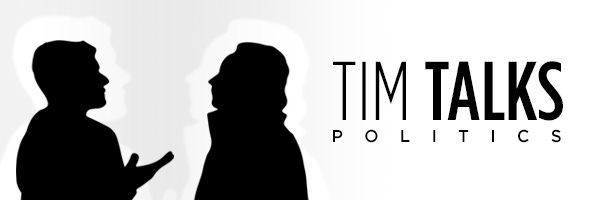August 25: If you don’t say “recession,” it doesn’t happen
In which, Democrats appear to have wished away a recession and bad election cycle, Europe and the US experience plunging water levels, and there’s a lot of “old” news that’s “new” news.
If you don’t say “recession,” it doesn’t happen
So, we’ve been tracking this recession that’s not a recession all year. Now, with things looking up for the Biden administration and Democratic Party at large (more below), it seems tracking economic data and debating the meaning of a phenomena that can impact the lives of tens of millions just isn’t that interesting a subject anymore. While some news organizations are cautiously optimistic about inflation leveling off, the Biden administration is full steam ahead on enacting policy that assumes a robust economy. Last week, it was the passage of the Inflation Reduction Act (which many acknowledge is a misleading/dishonest name for the bill), and this week, President Biden signed an order instituting a Department of Education program of student debt cancellation.
See, if there’s no recession and the economy is robust, then you can afford to dump an extra $300-500 billion into the money supply via debt cancellation.
You probably already know where I’m going with this.
The fundamentals of the current economy have not changed in the last month since we first got news that the US economy has seen two straight quarters of negative economic growth. In fact, you don’t have to look far to find troubling indicators of a decidedly unhealthy and unstable economy. This week’s data point of concern: 20 million households unable to pay utility bills.
Biden’s loan forgiveness will surely help these households, yes? Well, not exactly. See, not everyone in America has student debt, one. Two, early analysis already indicates that the loan forgiveness program will not necessarily be helping the most needy. Three, it will likely feed inflation, which is partly responsible for the high energy prices putting the pinch on those 20 million households to begin with. And four, there have already been national pauses on rents and loan repayments as a result of the Covid pandemic and people are STILL struggling to make ends meet.
Long story short, merely canceling a portion of student debt (a little less than 20% of the grand national student debt total) and counting it a win for families is a little like saying getting back to pre Covid macroeconomic numbers is a “robust” economic recovery. Getting back to ‘0’ may be better than being in the red, but it’s also not being in the black financially speaking, and your average American knows this. And that’s just talking about this from the consumer side. How is this new round of inflationary spending and tax increases going to impact small businesses? Negatively it would seem.
The strange internal divides within the parties
As the primary elections wrap up across the country, the teams look set for the campaign season ahead of the midterm elections in November.
Interestingly enough, both parties seem to be dealing with internal divides that could upend their November hopes. One could argue that between Joe Manchin’s backing the Inflation Reduction Act, Nancy Pelosi going to Taiwan, and early state-level victories on abortion laws that the Democrats are unifying around some key issues.
However, that analysis aged like day-old fish.
No sooner did President Biden announce his loan forgiveness program that moderate Democrats, fresh from primary election victories, both quietly distanced themselves and loudly criticized the President’s move as irresponsible in a sluggish economy. And the abortion issue? Democrats seem to have a less than unified perspective there, too.
On the Republican side, the strategy to go local in the early going of the election season saw conservatives sweep school board elections in Florida. Meanwhile, Rep. Liz Cheney, implacable foe of Donald Trump, lost to a primary challenger in Wyoming. However, while House Republicans appear to be maintaining momentum, Senate Republicans may be seeing an opportunity to take back that chamber slip away.
Just as the Democrats seem divided between reinvigorated party moderates, an old establishment, and an activist progressive wing, the Republicans seem divided between a reinvigorated Trump wing (thank you, FBI) and an apparently out of touch party establishment.
Which party can best manage its internal discord to prevent its having a destructive effect in November is anybody’s guess at the moment.
Keep reading with a 7-day free trial
Subscribe to Tim Talks Politics to keep reading this post and get 7 days of free access to the full post archives.



